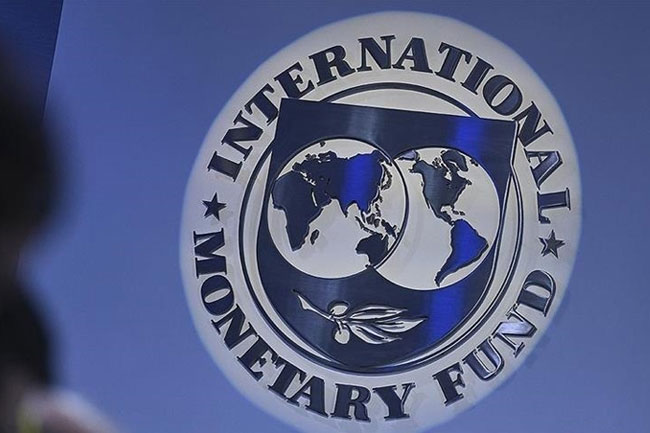
Colombo, October 10, 2025 — As Sri Lanka continues its painstaking climb out of the worst economic crisis in its post-independence history, there is encouraging news from Washington. The International Monetary Fund (IMF) has announced that it has reached a staff-level agreement with the Sri Lankan authorities on the Fifth Review of the country’s four-year Extended Fund Facility (EFF) — a sign that the reform effort, though arduous, is showing tangible progress.
The agreement, reached after a two-week mission led by Evan Papageorgiou, follows extensive discussions in Colombo between IMF officials and key policymakers on the island’s ongoing reform program. Once the IMF Executive Board gives its formal approval, Sri Lanka will gain access to about US$347 million, taking total disbursements under the program to more than US$2 billion.
A Recovery Taking Shape
According to the IMF mission’s assessment, Sri Lanka’s economy — which collapsed into crisis in 2022 amid depleted reserves, spiraling inflation, and debt default — has made remarkable headway since the EFF was approved in March 2023.
“The economic reforms implemented by the Sri Lankan authorities have continued to support the recovery,” Mr. Papageorgiou noted, highlighting that inflation has stabilized, reserves are rebuilding, and growth has exceeded expectations.
The economy expanded by 4.8% in the first half of this year, and the IMF expects growth to “remain solid” through the remainder of 2025. Inflation stood at just 1.5% in September, while foreign reserves reached US$6.1 billion — a significant improvement from the near-zero levels seen during the crisis.
Fiscal performance has also strengthened, supported in part by new revenue measures such as duties on vehicle imports. The IMF praised the government’s progress in debt restructuring, which it said is “nearing completion.”
The Long Road of Reform
For Sri Lanka, the Fifth Review is more than just another step in the IMF’s monitoring process — it is a test of endurance and commitment. The country’s EFF arrangement, worth SDR 2.3 billion (about US$3 billion), requires a delicate balancing act: restoring fiscal discipline while protecting the most vulnerable, reforming state enterprises, and ensuring that growth remains inclusive.
The IMF’s latest statement reflects cautious optimism but also underscores the work ahead. Approval of the next tranche depends on two critical milestones: Parliament’s passage of the 2026 Budget consistent with IMF targets, and confirmation of multilateral financing and progress on debt restructuring.
“The reform momentum should be sustained to safeguard macroeconomic stability and enhance Sri Lanka’s resilience to shocks,” the mission warned, noting ongoing global uncertainty and geopolitical tensions.
Staying the Course
The IMF’s advice is clear: Sri Lanka must maintain a disciplined approach to fiscal policy, improve tax compliance, and plug revenue leakages. The 2026 Budget, it said, should continue the effort to broaden the tax base and ensure prudent spending execution, avoiding a relapse into expenditure arrears or unsustainable subsidies.
One key area of emphasis is the energy sector, where the IMF has long advocated cost-reflective pricing to prevent future fiscal risks. Reforming state-owned enterprises (SOEs), many of which have historically been a drag on public finances, also remains a top priority.
In tandem, the government is moving ahead with new laws on public-private partnerships, SOE reform, public procurement, and asset management, all of which are expected to align with the new Public Financial Management Act.
On the monetary side, the Fund called for a data-driven, independent central bank and continued exchange rate flexibility, while building reserves and reducing non-performing loans in the banking sector.
Protecting the Poor and Fighting Corruption
While fiscal tightening is often the hallmark of IMF programs, the institution has placed renewed emphasis on social protection in Sri Lanka’s case. The mission urged improvements in the design and targeting of the welfare benefits payment scheme, to ensure that assistance reaches those most in need.
Equally important, the IMF stressed, is the continuation of governance and anti-corruption reforms. These include the implementation of electronic asset declarations, digitalization of tax administration, and full staffing of the Commission to Investigate Allegations of Bribery or Corruption (CIABOC).
“These measures are crucial not only to curb corruption but also to build investor confidence and public trust,” the IMF statement noted.
Looking Ahead
The IMF mission met with President and Finance Minister Anura Kumara Dissanayake, Prime Minister Dr. Harini Amarasuriya, Central Bank Governor Dr. P. Nandalal Weerasinghe, Treasury Secretary Dr. Harshana Suriyapperuma, and a range of other officials, as well as representatives from the private sector and civil society.
At the conclusion of the visit, Mr. Papageorgiou expressed appreciation for the government’s cooperation and reaffirmed the IMF’s support.
“Sri Lanka’s ambitious reform agenda continues to deliver commendable outcomes,” he said. “We reaffirm our commitment to support Sri Lanka achieve strong, sustainable growth.”
A Fragile but Promising Recovery
For Sri Lanka, the path ahead remains narrow but hopeful. After years of hardship, the country appears to be slowly regaining economic stability, rebuilding investor confidence, and restoring public services.
Yet, as the IMF cautions, maintaining momentum is crucial. With debt restructuring nearing its final stage and the global economy still volatile, the coming year will test the resilience and discipline of the government’s reform effort.
If Sri Lanka can sustain this trajectory — balancing fiscal prudence with compassion, and reform with resilience — the Fifth Review may well mark not just a technical milestone, but a turning point on its long road to recovery.
Subscribe to our newsletter to get notification about new updates, information, etc..